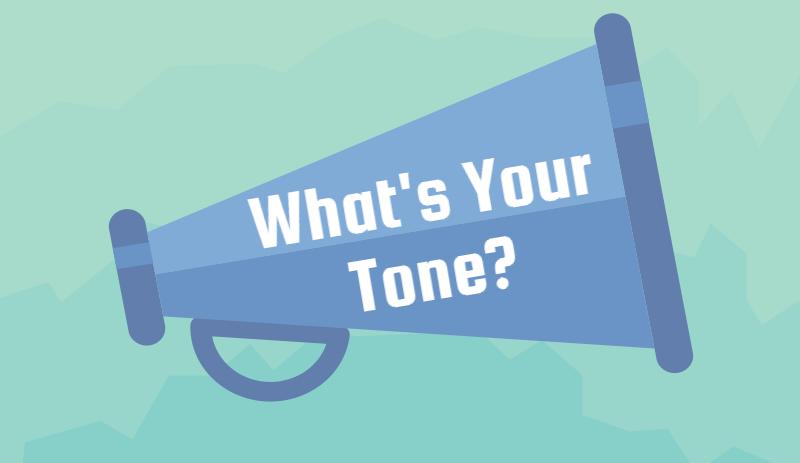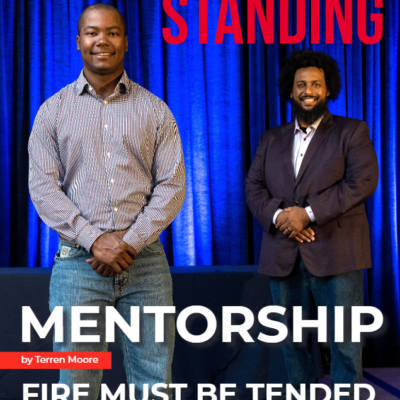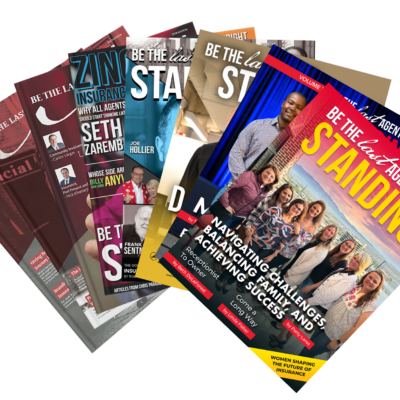Do you want to know what giants like Microsoft, LinkedIn, Geico, Allstate and Google all have in common when it comes to the world of branding? I bet you won’t guess because I myself was shocked to see that these giants all focused on their brand’s voice. They recently began paying a lot more attention to their corporate tone of voice. Yes, their corporate tone. Are you shocked?
Any guesses on why they are so focused on their brand’s tone of voice? It’s because these companies understand what an important role their brand’s tone of voice plays in how their customers perceive them. They also recognize that by crafting their content with its own distinct and recognizable voice it helps to differentiate their brand from their competitors. Let’s see, when the Lizard comes on TV or the radio do you think everyone knows the ad before they even say the name Geico? The answer is they most certainly do.
Of course, finding the right tone for your insurance agency is no small task. I’m not sitting here saying it’s easy because there are lots of factors to consider. Should it be contemporary or traditional (depends on the agency and where it’s located)? Practical or inspirational (depends on your agency’s brand identity)? Humorous or serious (combo may work best but once again depends on the agency’s brand identity)? And what exactly do any of those characteristics even mean to me and my agency?
Figuring out your agency’s tone isn’t easy and even once you have it, the work is far from over. You still have to determine how your new tone of voice gets translated into your writing (blogging) style. The real question becomes “What components should you and your insurance agency consider when applying the “new” tone of voice to your writing or blogging style?” In my agency’s view it comes down to these 10 main elements:
1. Word Length Matters
Children, as well as many adults, learn from shorter words first. Let’s not think as an insurance agent. We need to think and write as an everyday person who knows nothing about insurance. So if you want to be understood clearly by everyday people of all reading levels, use shorter words. Don’t talk over peoples’ heads. In terms of your agency’s tone, short words are simple and direct while longer ones suggest sophistication. The everyday Joe wants shorter words so they can not only relate but also understand what you are saying.
2. Sentence Length is Critical
Shorter sentences present a concise style, while longer ones are much more complex. A good guide to follow to ensure the value of any sentence length is that you should be able to read it out loud in a single breath. Yes, anything more than one breath is too long. It’s just a simple way of finding the right sentence length.
3. Tempo Matters
The use of shorter average-sentence length is very good. In order to keep readers interested, you must vary the length of sentences and paragraphs to give an organic, varied rhythm with its own flow. Tempo is important to keeping a reader on your agency’s blog.
4. Pronouns and Their Role
Pronouns stand in place of the names of people or things. Your choice of pronouns can have a huge effect on your agency’s tone. A good example of this is when writing about your insurance agency, you can use either first person (we) or third person (Paradiso Insurance.). First person is more immediate and this will help to position your brand as a group of people, while third person is more detached and abstract, with less clarity as to who is speaking. It may cause you to lose your readership.
When referencing your audience whether it’s a prospect or client, you can use second person (you) or third (customers). Second person is direct and engaging (it’s what people want), while third person is more distanced (where you lose prospects). My agency and I have written blog posts in the first and second person, which makes it clear but the biggest thing is to make sure you understand who your audience is and how they want you to write because this is all about them and not about you.
5. Conciseness
Conciseness is the ratio of ideas to words. The fewer words used to convey an idea, the more concise you and your agency are. On a practical level, being more concise is better and more profitable for your agency. Getting to the point saves time, energy and, therefore, money. But if you want to adopt a better flow, rambling, or a descriptive tone, you’ll need to be much less concise and you will want to incorporate additional words to achieve that less concise feel. Once again you really need to understand your agency’s audience because when you do it’s easier to have your agency’s tone in line with them.
6. Jargon and Its Role
Jargon is specialized language and used in a particular professional way. Using jargon can be catchy and it can be helpful but it also can be harmful if you don’t know your audience. What I’m saying is there’s good and bad jargon. Bad jargon hides the truth and may cause you to look unfaithful and untrustworthy to your audience, while good jargon will send off good signals to the reader and allow them into your agency’s community. Good jargon can save time, energy, money and space.
7. Buzzwords. Be Cautious
Buzzwords are jargon terms that have the attraction of novelty. Some industries, particularly the tech industry, generate a lot of buzzwords because they need to name new innovations such as “big data” or “internet of things.” But these buzzwords can become worn out from overuse. I will caution you and your agency that when using buzzwords as well as jargon you could turn off your audience. I’m not telling you not to use them; I’m simply saying that you should do your research before you do so. Only use them if you know the audience will understand what you’re trying to say. Let’s not forget, today’s buzzword is tomorrow’s bathwater so proceed with caution.
8. Clichés, Are They Worth It?
Clichés are words and phrases that have become worn out through overuse. Using clichés in today’s blogs will probably make your agency’s tone sound stale and very dull. You may need to use a cliché to get to where you audience is to get them to respond, but you also may pay a high price if you wind up sounding like everyone else. The last thing you and your agency wants is to sound like every other agency.
9. Everyday Talk—“Colloquial Language”
Colloquial language is the language of everyday people. It’s casual speech. It’s the way we talk when we are with our friends. It’s also the way we talk when we feel no one else is listening. It’s a flexible term because the meaning of casual varies from speaker to speaker and culture to culture. Everyday talk (colloquial language) is likely to use contractions and may include everyday slang or even profanity. Our agency stays away from profanity but I see others in our industry use it. I’m not saying one way is better than the other. All I’m saying is that you need to have a strategy and stick to it. Without a strategy, you may push your audience away without even knowing it. Your everyday talk may not be like someone else’s everyday talk, so proceed with caution.
10. Mistakes with Grammar
With grammar, the picture is less black-and-white. The “prescriptive” view is that we should respect and follow the rules of grammar. I’m not saying that we always do. The “descriptive” view is that the right way to use language. It is the way people speak and write. It may be hard to use proper English all of the time, but not doing so can be very harmful. You may inadvertently turn off a high value prospect if you are using slang instead of proper English. Make sure you are following and tracking your audience to see what aligns with them and make sure that it also aligns with your agency’s brand.
My Conclusion
Agencies need to put an emphasis on getting their tone of voice right and applying it consistently to all of their content in both the social world and the traditional world. They know that when their tone of voice is consistent, their audience will hear them whenever they are speaking and be engaged with them on any and all platforms. That consistent voice shows customers and or prospects that their agency brand is consistent and reliable and that every part of their customer experience will be equally good. Remember your Agency Brand is your EVERYTHING. When writing your blogs or in any of your other marketing efforts your Brand needs to be in ALL of it.





